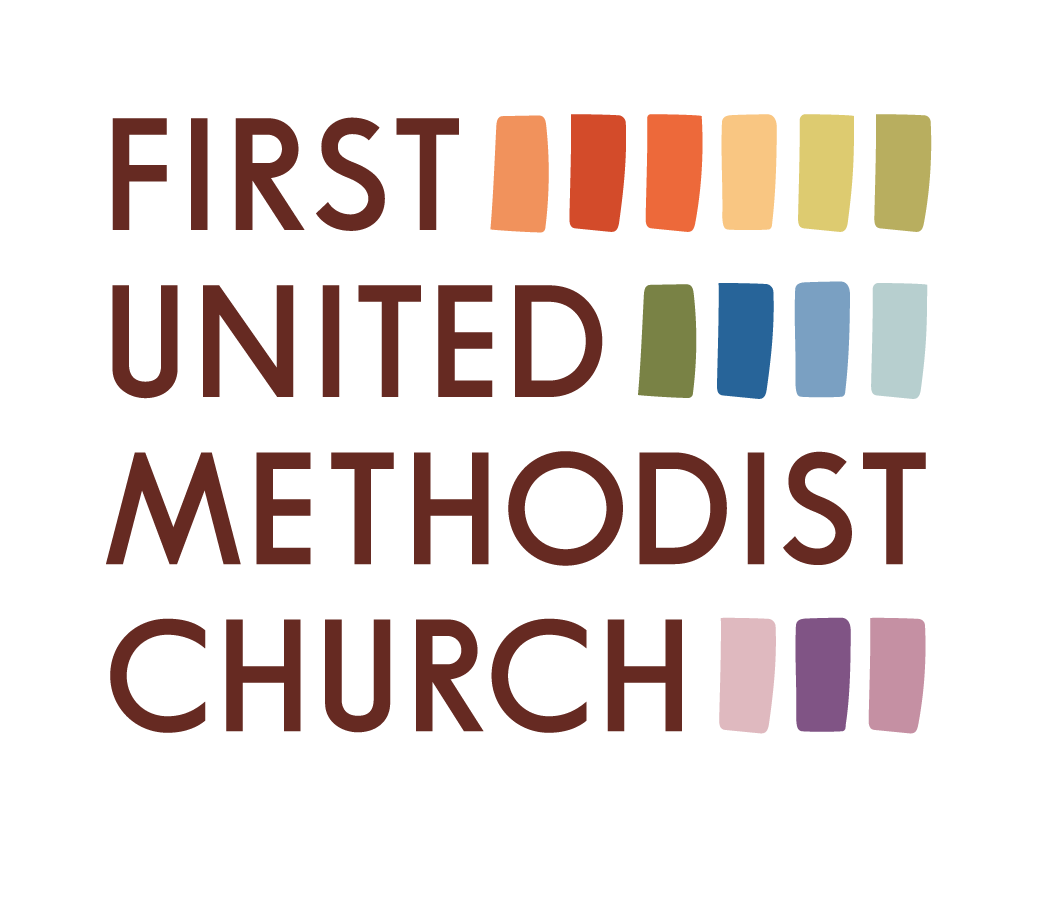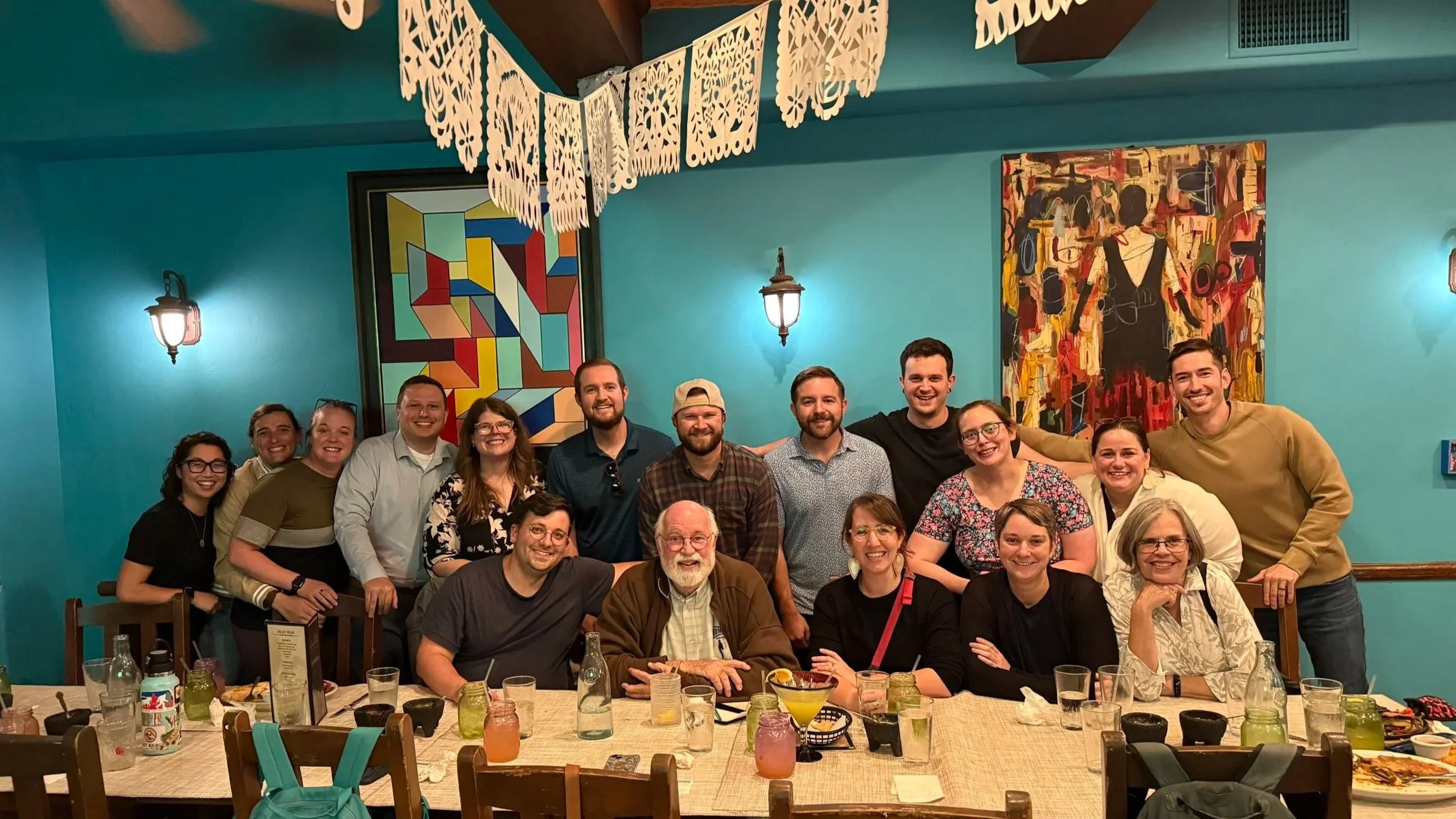No Exceptions
“Everyone is good- no exceptions. We belong to each other- no exceptions.”
We were at Casa Fina in the Boyle Heights neighborhood of Los Angeles, hanging on to every pearl of wisdom opened to us by Father Gregory Boyle (called Father G, or simply “G” for short). We’d reached the end of a 5-year learning cohort and sought to learn from those like Father G in our last 10-day gathering that concluded today.
Our group arrived at the restaurant a bit late, having just come from Spanish mass at the Dolores Mission Church. That is a story for another time. Father G waited in the center seat of the long table, his warm bearded smile and the ceiling’s streams of papel picado beckoning us in. We filed in around him like the disciples at the Last Supper. Instead of bread and wine, there were tortilla chips and margaritas. The meal felt no less holy for it.
Father G founded Homeboy Industries, the world’s largest gang intervention program. We’d spent the day talking with the homies there, soaking in personal testimonies of redemption. The program now employs hundreds of formerly incarcerated and gang affected individuals across 14 social enterprises. As they say, nothing stops a bullet like a job. It has been the difference between literal life and death for those who have walked through its doors- or through “Hope Alley,” as one hallway is named. There you find case workers, tattoo removal, therapy, legal assistance, a daily rotation of classes, and various jobs for the homies. Some of these had never had a (legal) job, having entered the carceral system before they were old enough to receive a paycheck.
I’d briefly met Father G and two homies from the Homeboy program 8 years ago when my local church in Houston hosted a conference on incarceration and reentry. I’ve also shared some of his work with you through sermons and other writing. I did not ever imagine I would get to be in a small group of clergy sharing dinner with him!
As we sat down at Casa Fina, we ordered from a menu that had nourished this neighborhood for decades while listening to the compassionate words that had transformed its people. Father Brendan at Dolores Mission and now Father G both recommended the Cadillac margarita. G had already gotten through half of one by the time we arrived, so we followed suit (a choice I later came to regret).
Margaritas in hand, we peppered him with questions: asking about his experience at Homeboy, the difficulty of the intense work, and the Ignatian spirituality that grounded him.
“When have you struggled?” we, an often-struggling clergy bunch, asked. “When have you needed to step away, or what have you done when you faced burnout?”
Father G thought for a moment and said that for all those decades of working with gang members, watching his parish kill one another, witnessing addiction consume those whom he loves, he has not come close to burnout.
In the early years, he admitted, he did struggle. In those first years at Dolores Mission Church -now nearly 40 years ago- he found himself serving the neighborhood with the highest concentration of gang activity in Los Angeles. His parish also included Aliso Village and Pico Gardens, the largest housing projects west of the Mississippi.
His parish needed his help. As a young Jesuit priest with a heart for God’s people, he thought through what programs and practices would be most helpful to them, earnestly looking for solutions he could bring to alleviate the community’s very serious problems.
That’s where he struggled.
If you go to the margins to save, boy that will burn you out, he told us. But if you go to the margins expecting, every day, to be transformed by the people you find there, that transformation will sustain you.
The community’s healing came from a faith in the people who inhabited it. By echoing the practices of Christian base communities in Latin America, the relationships and impact that now define Homeboy Industries began to take shape.
Father G then repeated some of the central tenets that ground the work at Homeboy: Everyone is good- no exceptions. We belong to each other- no exceptions. Kinship is everything: it is a radical form of mutuality and belonging that sees no distinction between “us” and “them.” Stand with the demonized so the demonizing will stop.
These sentiments are somewhat easier to say in the safe corners of the world that many of us inhabit. They are absolutely transformative in the places where hope has been stolen.
We learned so much from the homies and from G that day, but what sticks with me in this moment is his radical practice of ‘no exceptions.’ Again, something I wholeheartedly believe, but not something I am always able to practice when faced with the challenge!
What about you? Who are the people you struggle with, who you would like to write off as bad, or who you would like to exclude from your circle of kinship?
Our experience at Homeboy taught us that our collective future depends on our Christlike commitment to the good in all, to the belonging of everyone, and to the circle of kinship that is drawn so wide that no one stands outside of it. It is there that hope is found and that the flourishing of all -even the demonized, even the forsaken- is possible.
May we draw the circle wide!
Peace,
Pastor Karyn

